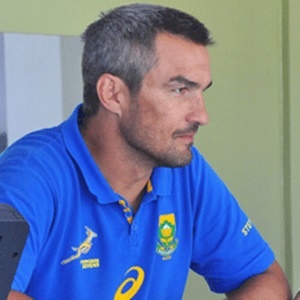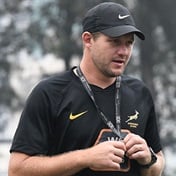
Cape Town - What with their current results suggesting they are not your typical South African rugby side, it was sort of comforting to learn a few days ago that the Blitzboks still do some things the old way.
Apparently if an academy player arrives at their Stellenbosch base with the airs and graces of a schoolboy superstar, he is kindly asked to have a wrestling match with arguably the most no-holds-barred player in World Rugby, 2015 World Rugby’s Sevens Player of the Year Werner Kok.
When the dust settles – and Kok has abrasively won the wrestling match – the young upstart usually has had his wings clipped.
Caught the eye
But apart from that one koppe stampe solution to problems, how the Blitzboks work is light years ahead of our typical South African rugby teams.
From the well-documented central contracting of their players by SA Rugby to their indoor facility, everything they do is aimed at squeezing every ounce of performance from the team.
This has resulted in their finally following up their 2009 maiden World Rugby Sevens title this year with this weekend’s London leg to spare.
But the emphatic manner of this season’s victory – in a year in which South African rugby has wallowed in the kind of addled thinking that has bordered on self-pity – has caught the eye for anyone keen on working out where the solutions lie for other areas of the country’s rugby.
Leading up to the final leg of the world Sevens series this weekend, the Blitzboks had some ridiculous numbers in their favour.
They had made eight out of nine finals, winning five of them; played 54 games, lost eight and drawn one; had captain Philip Snyman, Chris Dry and Kok lying first, second and fifth on the tackles-made list; and, as a team, had made the most tackles (1 057), bettering second-placed Australia by more than 100.
Living arrangements
The interesting thing is how this was achieved with Seabelo Senatla’s absence for more than half the season. To gain an insight into Senatla’s influence before he left, consider that his 32 tries made him the second-highest points scorer (160) after Branco du Preez (169) going into London this weekend.
The irrepressible Kwagga Smith was also missing, and the likes of Cecil Afrika, Du Preez, Justin Geduld and Rosko Specman also spent time away from the team due to injury, meaning the strength of the team is literally in teamwork.
But how do they do it?
As repeated ad nauseam, the players are centrally contracted, meaning most aspects of their professional life are controlled by SA Rugby: that would be training, diet and living arrangements, which invariably strengthen the bonds within the team.
They have an indoor facility, which means there is no such thing as a planned session being skipped because it is raining.
In Neil Powell they have an intelligent coach who decided to improve the impressive foundation left by Paul Treu instead of flattening it to start out in a new direction.
Dawie Snyman and Allan Temple-Jones probably don’t get the praise they deserve, the former for his skills coaching and the latter – who was there when the team won in 2009 – as conditioning coach.
Governing body's control
As a colleague said of Temple-Jones’ work: “You’ll never hear coaches from the other countries say how unfit our guys are as they do about our Super Rugby teams”.
The coaching staff have also been good at working hard on paying attention to detail, the example being how strong the team’s breakdown work is, even though Richie Gray, whose blueprint they are working from, last worked in South Africa in 2015.
Contrast that with how the 15s sides have regressed and you’ll get the gist of how hard the Sevens boys are still working on maintaining those principles. Also, Marius Schoeman’s academy – whose first four graduates were Smith, Geduld, Senatla and Kok, is paying off.
As there is no South African Sevens circuit domestically, having the academy gives them the opportunity to play in five international tournaments a year and, probably more importantly, practise with the senior team every day.
This makes for players who are good to go when they are called up to the senior team.
Even more important than how the Sevens team does is seeing that the national sevens team, the Cape Town Sevens and the Kings are all controlled by SA Rugby. Should all our rugby be under the governing body’s control?
Follow me on Twitter @Simxabanisa




 Publications
Publications
 Partners
Partners


















